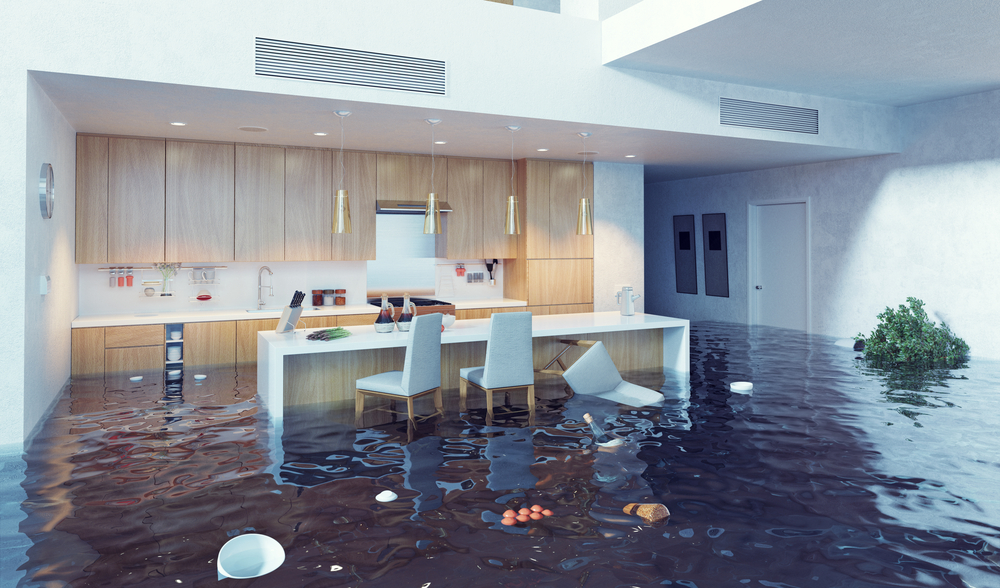
What Are the Common Causes of Home Water Damage?
1. Leaking or Burst Pipes
One of the leading causes of home water damage Vancouver is leaking or burst pipes. Pipes can weaken over time due to corrosion, temperature fluctuations, or high water pressure. If a pipe bursts, it can flood an entire area of your home within minutes, leading to severe structural damage.
To prevent this, homeowners should regularly inspect their plumbing system for signs of leaks, such as damp spots on walls, ceilings, or floors. If you suspect a leak, contact an emergency restoration company immediately to minimize damage.
2. Faulty or Aging Plumbing Systems
Old or poorly maintained plumbing systems are prone to leaks and failures. Over time, pipes can develop small cracks, leading to slow leaks that cause mold growth and water damage. Additionally, outdated plumbing materials may not be able to withstand modern water pressure demands.
To prevent issues, homeowners should consider upgrading their plumbing system, especially if the home is over 20 years old. Routine maintenance by a professional plumber can also help detect problems before they escalate.
3. Roof Leaks and Poor Drainage
A damaged or poorly maintained roof is another major cause of home water damage in Vancouver. Missing shingles, cracked flashing, and clogged gutters can allow water to seep into the home, causing rot, mold, and interior damage.
Regular roof inspections and cleaning gutters can help prevent water damage. Ensuring proper drainage away from your home’s foundation also reduces the risk of basement flooding.
4. Basement Flooding
Basements are highly susceptible to water damage, especially in areas with heavy rainfall. Poor drainage, cracks in the foundation, and malfunctioning sump pumps can lead to water accumulation in basements.
Installing a sump pump, sealing foundation cracks, and improving exterior drainage can prevent basement flooding. If your basement does flood, an emergency restoration company can provide quick water extraction and drying services.
5. Malfunctioning Appliances
Household appliances like washing machines, dishwashers, and water heaters can cause water damage if they leak or malfunction. Over time, hoses and connections can degrade, leading to slow leaks or sudden bursts of water.
Regularly inspecting and maintaining these appliances, replacing old hoses, and installing water leak detectors can help prevent unexpected flooding in your home.
6. HVAC System Leaks
Heating, ventilation, and air conditioning (HVAC) systems can also contribute to water damage if they are not maintained properly. Clogged drain lines and condensation buildup can result in leaks that damage walls, ceilings, and flooring.
Cleaning and servicing your HVAC system regularly ensures proper drainage and prevents water accumulation that could lead to mold and mildew growth.
7. Clogged or Backed-Up Drains
Clogged drains in sinks, toilets, and bathtubs can lead to water overflow, which can damage flooring and walls. Additionally, severe blockages can cause sewage backups, which pose significant health hazards.
Avoid flushing non-biodegradable materials down the toilet and clean drains regularly to prevent clogs. If you experience a severe blockage, calling a professional plumber or an emergency restoration company can help resolve the issue.
8. Poorly Sealed Windows and Doors
If windows and doors are not properly sealed, water can seep into your home during heavy rainfall. Over time, this can lead to mold growth, damaged walls, and deteriorating wood structures.
Applying weatherproof seals and checking for gaps around doors and windows can prevent moisture infiltration and water damage.
9. Foundation Cracks
Cracks in the foundation can allow water to enter your home, especially during periods of heavy rainfall or snowmelt. Over time, water intrusion can weaken the foundation and cause significant structural damage.
Sealing foundation cracks and ensuring proper grading around your home can help prevent water from pooling near the foundation and seeping into your basement or crawl space.
10. Natural Disasters and Extreme Weather
Heavy rain, hurricanes, and flooding can cause severe home water damage in Vancouver. While you cannot control the weather, you can take precautions to protect your home, such as installing flood barriers, using water-resistant materials, and maintaining proper drainage.
If your home suffers from extreme weather-related damage, contacting an emergency restoration company immediately can help mitigate losses and restore your home quickly.
How to Prevent Home Water Damage
Preventing home water damage in Vancouver requires proactive maintenance and awareness. Here are some essential steps homeowners can take:
- Regular Inspections: Check pipes, appliances, and roofing for signs of wear and tear.
- Proper Drainage: Ensure gutters and downspouts direct water away from the home.
- Water Leak Detectors: Install smart water sensors to alert you of leaks.
- Maintain Appliances: Replace old hoses and service appliances regularly.
- Professional Restoration Services: In case of water damage, an emergency restoration company can help with quick remediation.
Conclusion
Understanding the common causes of home water damage in Vancouver allows homeowners to take preventive measures and protect their property. From leaking pipes and faulty appliances to roof leaks and extreme weather, water damage can occur in various ways. However, with proper maintenance and prompt action, you can reduce the risks significantly.
If you experience water damage, don’t hesitate to call an emergency restoration company for professional assistance. Their expertise can help restore your home efficiently and prevent further issues such as mold growth and structural damage. Being prepared and proactive is key to safeguarding your home from costly repairs and potential health hazards.
Leave Your Comment